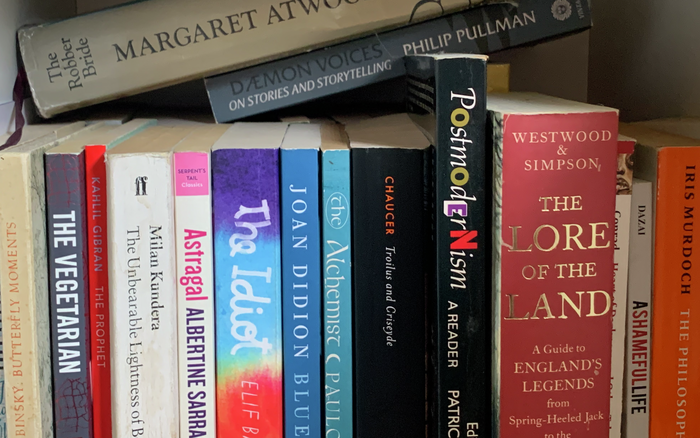In defence of reading the whole book
With the rise of BookTok and BookTwitter, Dion Everett argues that we should think twice before trusting online book critics

Hanya Yanagihara’s 2015 novel A Little Life has, since publication, been a topic of great contention throughout the literary world. A Guardian review sums up the novel in three words which really encompass its effect, both for those who enjoyed it and those who did not: ‘unusual, uneven, unrelenting’. The book’s divisive reputation lies not in its storytelling, but in its subject matter: Jude St Francis, the eventual protagonist, was the victim of sexual abuse from a young age, and these experiences have left him with unhealing trauma. The trauma has impacted not only his lifestyle and personal relationships but also his relationship with himself. Jude’s self is, by all means, broken, and he has a long-term habit of self-harm which no one, not even the man closest to him, can turn him away from. That being said, A Little Life is also a book of hope. For all his troubling life experiences, Jude perseveres, because his friends are good people who care for him deeply. He sees his adult years, marked by trauma but ultimately good and worth living.
This isn’t intended to be a defence of A Little Life. Many of those have already been written, and many more will, especially with the novel’s surge in popularity following the recent stage adaptation. What I would like to argue is that a great portion of the discourse surrounding A Little Life relies on clickbait and is written by those who don’t read the novel, rather than those who do.
A great portion of the discourse surrounding A Little Life relies on clickbait
Thanks to platforms like TikTok and Twitter, much recent book criticism has consisted of dramatic, discursive diatribes against works whose subject matter is in some way divisive or controversial. This trend, which may be familiar to those on ‘BookTok’ or ‘BookTwitter’, relies heavily on dramatic phrasing, reducing works to a single facet of their identity: ‘trauma porn’ in the case of A Little Life or ‘paedophile apologism’ in the case of Lolita or My Dark Vanessa. The trouble with these discourses is their reductionism – they assume that specific scenes or events are reflective of the whole book. If you had only read 49 pages of a book and the Wikipedia summary, you would be hard-pressed to express in any convincing way the honest essence of the book. That is not to say that anyone who read these books and disliked them is in the wrong – art is subjective, and arguments are what keep the literary tradition alive and moving. Anyone can refuse to engage with art once their enjoyment of it runs out, but to make a public judgement about the content of a book you’ve not actually read (beyond a simple ‘I didn’t finish this, it wasn’t for me’) is dishonest. It suggests that a complex understanding of literature can come without knowing the work at all. Wikipedia will not replace reading a book, just as it will not replace watching a film, and the trendsetters who seem to believe it will are leading the way toward a reductionist consumption of literature.
Art is subjective, and arguments are what keep the literary tradition alive and moving
The most active parts of novels tend to be plot points – the driving forces of character decisions. But to neglect everything that comes in-between is to neglect everything that gives books their nuance and depth. What a summary cannot replace is character development, the reasoning behind plot choices and the effect of narrative voice on the reader’s reception of the work. It is not right to condemn a book purely based on its trigger warnings, nor is to right to suggest a book can be digested purely based on its synopsis. The trend of avoiding comprehensive reading in favour of clickbait captions and easy likes is a worrying indictment on the state of literary analysis.
A Little Life is not the only victim of this trend. Popular discourses on BookTok and Twitter tend to be divisive for the simple reason that conveying long-form discussions about literature is impossible in a short-form, fast-consumption medium. To condense a complex book into a thirty-second soundbite is to do the book an injustice. Is A Little Life ‘trauma porn’, as so many TikTokers say? Is Lolita ‘paedophile apologism’? Only those who have read to the end can tell.
 News / Colleges charge different rents for the same Castle Street accommodation2 March 2026
News / Colleges charge different rents for the same Castle Street accommodation2 March 2026 News / News in Brief: waterworks, wine woes, and workplace wins 1 March 2026
News / News in Brief: waterworks, wine woes, and workplace wins 1 March 2026 News / Climate activists protest for ‘ethical careers policy’1 March 2026
News / Climate activists protest for ‘ethical careers policy’1 March 2026 News / Angela Merkel among Cambridge honorary degree nominees27 February 2026
News / Angela Merkel among Cambridge honorary degree nominees27 February 2026 News / Private school teacher who lied about Cambridge degree barred from teaching27 February 2026
News / Private school teacher who lied about Cambridge degree barred from teaching27 February 2026









